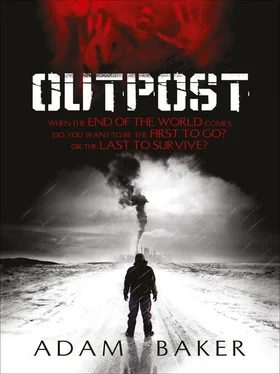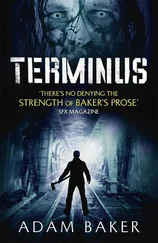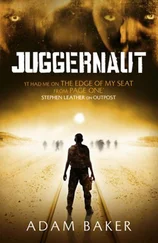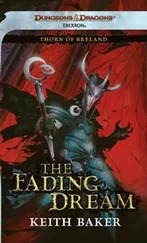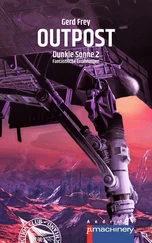She was cramped. She could barely move. She had lowered the sail and rigging, folded the silver fabric, coiled the rope, and stowed them below deck.
The mast was still raised. A design fault. It was welded in place. It could not be lowered flat. A big steel spike raised skyward during a fierce lightning storm.
Nikki doubted she would feel a lightning bolt when it struck. Steel mast, aluminium hull. She would be microwaved in an instant. A cooked sailor, lying in her bunk, crisped and smoking, like a hunk of roast pork.
She lay waiting to see if the boat would shake itself to pieces. She waited to see if the bolts and welds would hold. She waited to see if she would live or die.
She wondered how long the storm would last. She checked the luminescent dial of her watch. Seven hours of wind and rain.
It felt like the waves were easing off. She switched on her flashlight. The cardboard storage boxes had split open. The interior of the cabin was a jumble of tins and cartons. Her sleeping bag was dusted with cornflakes.
She wriggled to the roof hatch. She reached for the deadbolt. She hesitated. This could be a big mistake. If the typhoon ripped the hatch from her hand the boat would quickly become inundated and sink. Yet the waves seemed to be diminishing. The boat was no longer hurled from side to side. Maybe the storm had passed.
Nikki released the deadbolt and lifted the hatch a fraction. Blast of frozen wind and salt spray.
Flash of lightning.
She let her eyes adjust. A seething ocean. Surging, frothing waves.
Second sheet of lightning.
Something up ahead. Something big, oncoming, eclipsing the stars.
‘Holy fuck.’
A massive wave, high as an office block.
She slammed the hatch and hammered the deadbolts home. She threw herself on to the bunk and curled tight.
Building roar. The boat was rising, rising like an express elevator.
Brief moment of balance at the summit of the wave, like a rollercoaster about to plunge.
The boat pitched nose-first. Smash impact. Fast tumble. The boat flipped end over end. Nikki stayed foetal and protected her head as she was pelted with cans and cartons.
Deceleration. Slow spin, then calm and quiet.
She pushed boxes and bags aside and sat up. A trickling sensation down her neck. She took a pen torch from her pocket and switched it on. Blood on her neck. A cut beneath her right ear. Nothing serious.
She stretched. Her back was bruised. She sat in silence for a while, glad to be alive. She pressed a sock to her ear to sop blood.
Wind noise slowly began to ease.
A trickling sound. Nikki sat forward. Steady, constant drip-drip.
She kicked bags and boxes out of the way. A split in the hull. A cracked weld. A steady stream of seawater.
She stuffed a jacket against the crack and tried to stem the flow. Water sprayed her face.
She took Nail’s dive knife from her pocket and tried to wedge fabric into the fissure with the tip of the blade. No good.
Water gathered at the bottom of the boat, covering her shoes. She threw open the roof hatch and bailed with a tin cup.
She tried to keep calm. If she allowed herself to panic, if she gave in to screaming terror, she would die.
Brainwave. She slapped a plastic plate over the leak and braced the plate tight in position with a ski pole. Fierce jets of water sprayed from behind the plate like sunrays. She hammered the pole into position. The leak slowed to a dribble, then stopped.
Knee-deep in freezing water. Bottles and bags floated around her. She bailed some more.
She woke, damp and shivering. She ached. She stretched.
She exhaled into a cupped hand. Her breath smelled like sewage. She found toothpaste among the clutter. She squeezed paste on to her finger and rubbed it over her teeth.
She took out the radio.
‘Rampart, do you copy, over?’
It took an hour to raise a reply.
‘Rampart here .’
A faint voice. A murmur through hiss and crackle.
‘Jane? Is that you?’
‘How’s it going, Nikki ?’
‘The boat almost sank.’
‘Say again? The boat sank ?’
‘There was a storm. I’m all right.’
‘What happened to the boat, Nikki? What went wrong ?’
‘It was the welds. A big wave split the hull. If you build another boat, you’ll have to make it stronger. The waves out here are like mountains.’
‘I’m losing you. You’re passing out of range .’
‘I just wanted to say goodbye.’
‘Good luck, Nikki. God bless .’
Nikki unrolled global maritime charts. Depth contours. Tides, wrecks and buoys. She had to be careful. The paper was wet and easy to rip.
She examined ocean currents. A map of the Arctic covered in swirling arrows. She was about to reach the Greenland Sea. She was caught in a current called the Beaufort Gyre. Part of a bigger system of circular currents that meshed like cogs and dictated transpolar drift. It would carry her south, then east to the Norwegian coast. But it might take weeks.
She was thirsty. She flipped open the hatch. She lowered the desalinator tube into the sea and cranked the handle. Fresh water dribbled from the output tube. She filled her canteen. It took an hour. Adrenalin was slowly ebbing away to be replaced by boredom and despair.
Nikki passed land. A serrated ridge on the pale horizon. A seagull wheeled high above the boat. She checked her map. She was passing the island of Longyearbyen. It was Norwegian territory. A barren rock. Russians used to mine coal. Whatever sparse population once scratched a living on the island had probably long since been evacuated, but there might be stores.
The sea surrounding Norwegian territory was supposed to be closed. AWACS planes were guiding a flotilla of gunboats. But she hadn’t seen any planes and she hadn’t seen any boats. She watched for the winking red strobes of high-altitude aircraft, but the skies were empty.
What would happen if she were confronted by a gunboat?
Would they tell her to turn round and head the other way? Would they take her prisoner? Drag her off to an internment camp? Most likely they would open up with a deck-mounted .50 cal and blow her from the water.
She found tins but the labels had come off. She shook them. A rattle. Chick peas. She couldn’t find the tin opener. She stabbed at the tin with a nail file, but barely made a scratch.
She rationed her food. Three raisins for breakfast. A Ritz cracker with a scoop of peanut butter for dinner.
It took a long time to pump fresh water. A lot of muscle power. She filled a two-litre bottle. She allowed herself a swig every hour.
She drifted down the coast of Longyearbyen. Weak daylight. She found a pair of rubber-coated binoculars among the clutter below deck. She scanned the shore. Bleak volcanic crags. No birds, no grass, no life.
She looked south. A smudge against the sky. Was it a cloud or was it smoke?
The boat slowly rounded a headland. She saw the smouldering ruins of a wooden cabin. The roof had partially collapsed.
A fisherman’s hut? Shelter built by whalers?
Nikki shouted towards the shore.
‘Hello? Can anyone hear me?’
The boat drifted past the distant house.
‘Hello? Is anyone there?’
Movement. A figure in the cabin doorway. Maybe someone scavenging supplies.
‘Hey. Hey, over here.’
She waved her arms.
‘Hey. Hello.’
The figure looked her way.
She took binoculars from a hook near the hatch. Focus, re-focus. Blood and metal. The guy had no jaw. His tongue flapped loose. He was joined by two women. Their faces were a mess of spines. All three wore furs streaked in blood. They stood at the end of a wooden jetty, reaching for the distant boat with scabrous, clawing fingers.
Читать дальше
